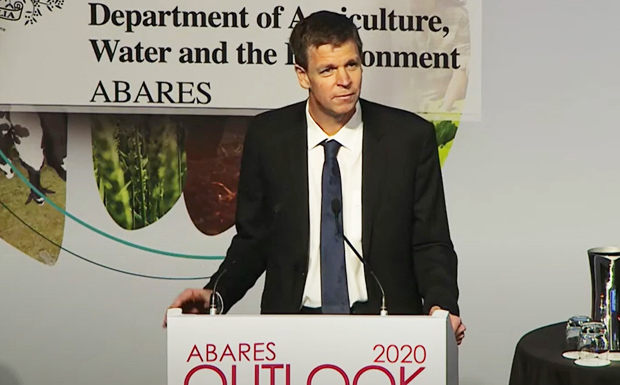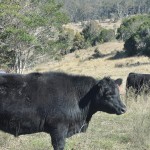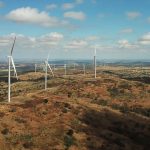
June 17, 2020
While COVID-19 will continue to present challenges, the outlook for agriculture will be dominated by recovery from drought, according to ABARES’ June Agriculture Commodities report released on Wednesday.
Acting Executive Director Peter Gooday said better seasonal conditions were expected to see the value of farm production increase modestly to $61 billion in 2020-21, the third straight year over $60 billion.
“This is driven by a strong forecast rebound in grain production, up 15 per cent to $30.8 billion,” Mr Gooday said.
“The value of livestock production is forecast to fall 10 per cent to just above $30 billion, ending a run of very strong growth. After three years of widespread drought, conditions have begun to improve, and restocking is likely to commence.
“A global economic slowdown combined with higher agricultural production is going to weigh on prices. Price falls are forecast for most major commodities.
“A bright spot is that red meat prices are expected to hold up, with the impact of African swine fever still driving protein demand in Asia.
“As we recover from drought, the value of farm exports is forecast to fall by around $2.7 billion to $44.4 billion in 2020-21, driven by falling meat exports and the rebuilding of domestic grain stocks.
“With graziers looking to rebuild herds and flocks, slaughter numbers – and therefore exports – are forecast to fall.
“Meat and live animal exports are forecast to fall by $3.5 billion and while exports of grain are expected to increase by almost $2.3 billion, over 4 million tonnes of the 2020-21 grain harvest is expected to be retained to rebuild domestic stocks.
“Replenishing our herds, flocks and grain stocks sets us up well for the long term.
“While domestic grains stocks are sufficient to see us through to the winter harvest, this investment in grain stocks will be important in improving resilience in our supply.”
Mr Gooday said Australian agriculture’s resilience and ability to adapt swiftly to challenges should position the sector well during the post-pandemic recovery.
“With a few notable exceptions, Australian agriculture has not been severely impacted by COVID-19 and has shown that it can adapt in most cases,” Mr Gooday said.
“Exporters of high-value seafood, wine and meat products did face significant impacts but have also demonstrated adaptation by expanding online sales and marketing directly to households.
“We recognise that there is an enormous amount of uncertainty regarding the economic impact of COVID and the duration of effects.
“This translates to more uncertainty in agricultural markets, but as we have seen, demand for Australian exports of food staples remains relatively steady, and our industry has shown it can adapt as conditions change.”
- External link: ABARES Agriculture Commodities June quarter report






















